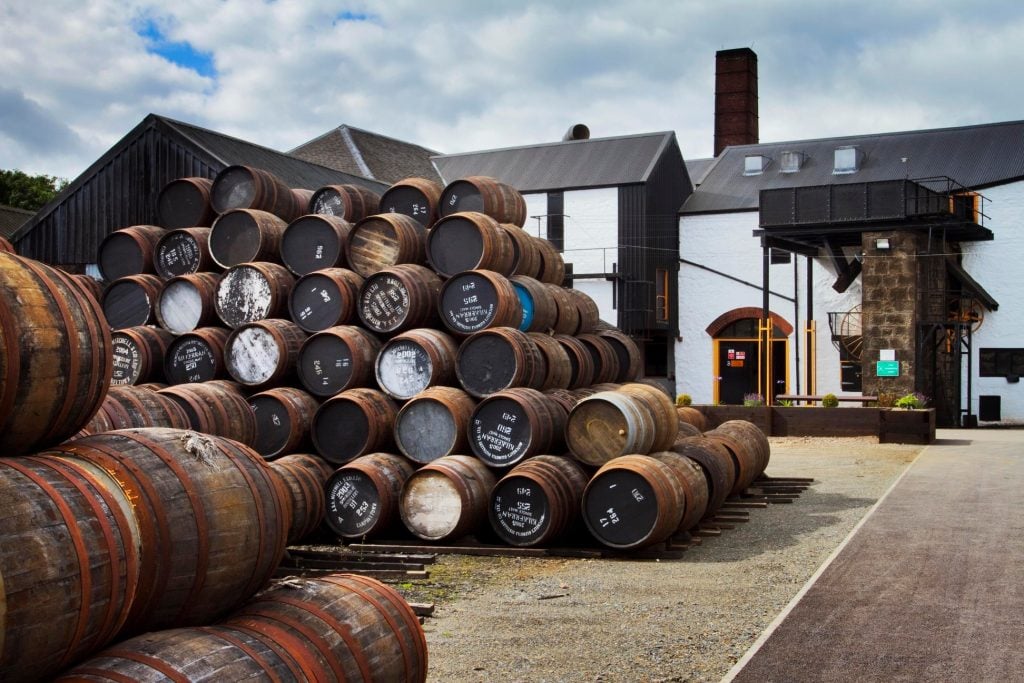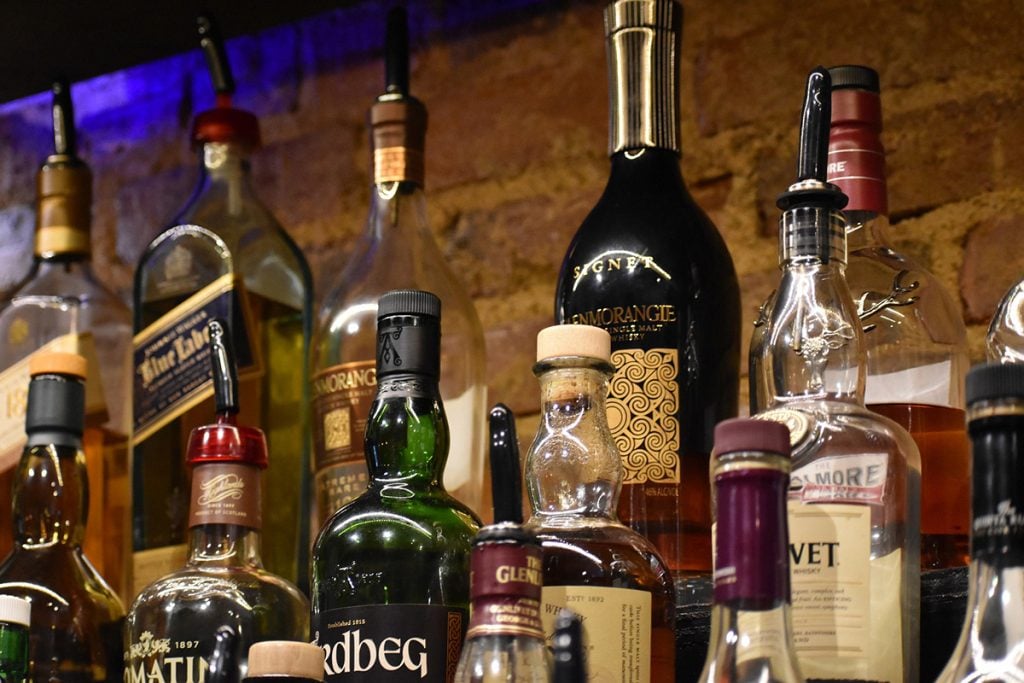How many different Scotch whiskies are there?

There’s loads of Scotch whisky out there. How much exactly? Well…
That’s not a very easy question to answer. We’ve run the maths and all we can say for certain is that it’s greater than seven.
What is much easier to answer is how many Scotch whisky distilleries there are. It’s simpler because the Scotch Whisky Association keeps track of that sort of thing.

There’s loads of Scotch whisky, with more than 22 million barrels currently maturing spirit in Scotland.
The number of Scotch whisky distilleries in production
As of July 2023, there are 146 whisky distilleries in Scotland. This makes it the greatest concentration of whisky production in the world.
There are tens of distilleries that have closed over the years sadly and there is still whisky on the market from some of them, such as Littlemill or Caperdonich. You could make a case to include them in these numbers, but the SWA doesn’t and we’re likewise focusing on distilleries making whisky now.
That number is changing all the time, however, because we are in the midst of a whisky boom. There’s quite a few whisky distilleries in development that will open soon, like Portintruan Distillery on Islay, Dunphail in Moray, and Port of Leith in Edinburgh.
By the end of the year, it’s likely that Scotland will have more than 150 whisky distilleries in production with more to come. Within a decade the number could well, and very likely will, be closer to 200.

Scotland currently has 146 whisky distilleries. Strathisla (pictured) might be the most beautiful.
Brands and regions
That doesn’t even come close to telling us how much Scotch whisky there is because there’s so many brands out there. The vast majority of Scotch whisky distilleries market whisky under their own label. There are a few that don’t but will still sell to independent bottlers and other brands who do bring the whisky to market. But we’ll look at brands in greater detail next week.
You’re also probably aware that each distillery belongs to a whisky-producing region in Scotland. There’s Speyside, which is the biggest with over 50 distilleries alone, to the smallest which is Campbeltown which has just three distilleries (there are three more that have been approved).
Then there’s the Lowlands, the Highlands – which includes the Islands – and Islay, an island itself but arguably the most famous individual region. It’s currently home to just nine distilleries, but Port Ellen will reopen soon and three more are confirmed to be on the way.

There can never be too much, we say!
Malt and grain
Each Scotch whisky distillery can be essentially split into two categories: malt whisky makers and grain whisky makers (for more info on the differences between malt and grain whisky this recent blog should help). Although there’s always exceptions to every rule and in Scotch whisky we have Loch Lomond, which has the distinction of being both a grain and malt distillery.
Grain whisky distilleries include Cameronbridge, Girvan, Invergordon, North British, Starlaw, Strathclyde, and the newer Reivers Distillery. There’s not a lot of them because they are such industrial powerhouses creating huge amounts of whisky. So much so that even big companies like Diageo, Pernod Ricard, William Grant & Sons, and Whyte & Mackay each own just one (although Diageo and Edrington do share North British in a joint venture, so Diageo has 1.5 you could say).
There are considerably more malt distilleries. Just under 140, in fact. That’s a lot of malt whisky. These produce the malt that goes into blends like Johnnie Walker and Famous Grouse, as well as the single malts you love like The Balvenie, Lagavulin, Glenfiddich, and Highland Park.
We’ll conclude this little guide by recommending you go and visit some of these distilleries. It’s one of the best ways to learn and grow your love for whisky. In 2019, there were 2.2 million visits to Scotch whisky distilleries, making the industry the third most popular tourist attraction in Scotland, so if you’re debating the trip then just remember the words of Marge Simpson: “It will be good for the economy!”
